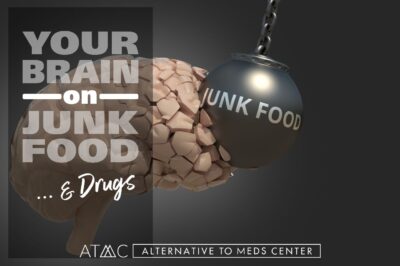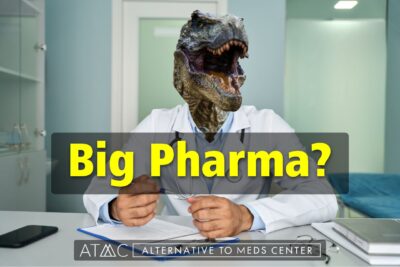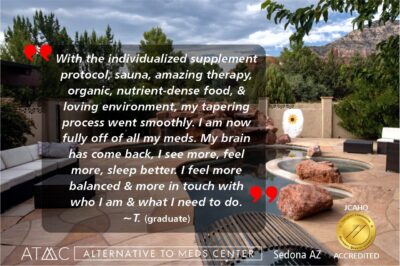1. Manderscheid R. et al (CDC authors) Evolving Definitions of Mental Illness and Wellness published in Journal of Public Health Research Vol 7 No. 1 A10 online Jan 2010 [cited 2024 June 6]
2. Cain KS, Meyer SC, Cummer E, Patel KK, Casacchia NJ, Montez K, Palakshappa D, Brown CL. Association of Food Insecurity with Mental Health Outcomes in Parents and Children. Acad Pediatr. 2022 Sep-Oct;22(7):1105-1114. doi: 10.1016/j.acap.2022.04.010. Epub 2022 May 13. PMID: 35577282; PMCID: PMC10153634. [cited 2024 June 6]
3. USDA Key Statistics Report on Food Security Status of US Households in 2022 [published online Oct 25 2023] [cited 2024 June 6]
4. USDA Food Insecurity, Chronic Disease, and Health Among Working-Age Adults [published online July 2017] [cited 2024 June 6]
5. AlAmmar, Welayah & Albeesh, Fatima & Khattab, Rabie. (2020). Food and Mood: the Corresponsive Effect. Current Nutrition Reports. 9. 10.1007/s13668-020-00331-3. [cited 2024 June 6]
6. Taylor AM, Holscher HD. A review of dietary and microbial connections to depression, anxiety, and stress. Nutr Neurosci. 2020 Mar;23(3):237-250. doi: 10.1080/1028415X.2018.1493808. Epub 2018 Jul 9. PMID: 29985786. [cited 2024 June 6]
7. Huang Q, Liu H, Suzuki K, Ma S, Liu C. Linking What We Eat to Our Mood: A Review of Diet, Dietary Antioxidants, and Depression. Antioxidants (Basel). 2019 Sep 5;8(9):376. doi: 10.3390/antiox8090376. PMID: 31491962; PMCID: PMC6769512. [cited 2024 June 6]
8. Gunnell D, Ashby D. Antidepressants and suicide: what is the balance of benefit and harm. BMJ. 2004 Jul 3;329(7456):34-8. doi: 10.1136/bmj.329.7456.34. PMID: 15231620; PMCID: PMC443451. [cited 2024 June 6]
9. Tosti V, Bertozzi B, Fontana L. Health Benefits of the Mediterranean Diet: Metabolic and Molecular Mechanisms. J Gerontol A Biol Sci Med Sci. 2018 Mar 2;73(3):318-326. doi: 10.1093/gerona/glx227. PMID: 29244059; PMCID: PMC7190876. [cited 2024 June 6]
10. Ventriglio A, Sancassiani F, Contu MP, Latorre M, Di Slavatore M, Fornaro M, Bhugra D. Mediterranean Diet and its Benefits on Health and Mental Health: A Literature Review. Clin Pract Epidemiol Ment Health. 2020 Jul 30;16(Suppl-1):156-164. doi: 10.2174/1745017902016010156. PMID: 33029192; PMCID: PMC7536728. [cited 2024 June 6]
11. Clapp M, Aurora N, Herrera L, Bhatia M, Wilen E, Wakefield S. Gut microbiota’s effect on mental health: The gut-brain axis. Clin Pract. 2017 Sep 15;7(4):987. doi: 10.4081/cp.2017.987. PMID: 29071061; PMCID: PMC5641835. [cited 2024 June 6]
12. Arneth BM. Gut-brain axis biochemical signalling from the gastrointestinal tract to the central nervous system: gut dysbiosis and altered brain function. Postgrad Med J. 2018 Aug;94(1114):446-452. doi: 10.1136/postgradmedj-2017-135424. Epub 2018 Jul 19. PMID: 30026389. [cited 2024 June 6]
13. Muscaritoli M. The Impact of Nutrients on Mental Health and Well-Being: Insights From the Literature. Front Nutr. 2021 Mar 8;8:656290. doi: 10.3389/fnut.2021.656290. PMID: 33763446; PMCID: PMC7982519. [cited 2024 June 6]
14. Grajek M, Krupa-Kotara K, Białek-Dratwa A, Sobczyk K, Grot M, Kowalski O, Staśkiewicz W. Nutrition and mental health: A review of current knowledge about the impact of diet on mental health. Front Nutr. 2022 Aug 22;9:943998. doi: 10.3389/fnut.2022.943998. PMID: 36071944; PMCID: PMC9441951. [cited 2024 June 6]
15. Firth J, Gangwisch JE, Borisini A, Wootton RE, Mayer EA. Food and mood: how do diet and nutrition affect mental wellbeing? BMJ. 2020 Jun 29;369:m2382. doi: 10.1136/bmj.m2382. Erratum in: BMJ. 2020 Nov 9;371:m4269. PMID: 32601102; PMCID: PMC7322666. [cited 2024 June 6]
16. Choudhary AK, Lee YY. Neurophysiological symptoms and aspartame: What is the connection? Nutr Neurosci. 2018 Jun;21(5):306-316. doi: 10.1080/1028415X.2017.1288340. Epub 2017 Feb 15. PMID: 28198207. [cited 2024 June 6]
17. Moffatt, B., & Elliott, C. (2007). Ghost Marketing: Pharmaceutical Companies and Ghostwritten Journal Articles. Perspectives in Biology and Medicine 50(1), 18-31. [cited 2024 June 6]
18. Sismondo S. Ghost management: how much of the medical literature is shaped behind the scenes by the pharmaceutical industry? PLoS Med. 2007 Sep;4(9):e286. doi: 10.1371/journal.pmed.0040286. PMID: 17896859; PMCID: PMC1989751. [cited 2024 June 6]
19. Mansi BA, Clark J, David FS, Gesell TM, Glasser S, Gonzalez J, Haller DG, Laine C, Miller CL, Mooney LA, Zecevic M. Ten recommendations for closing the credibility gap in reporting industry-sponsored clinical research: a joint journal and pharmaceutical industry perspective. Mayo Clin Proc. 2012 May;87(5):424-9. doi: 10.1016/j.mayocp.2012.02.009. PMID: 22560521; PMCID: PMC3538468. [cited 2024 June 6]
20. Song E, Ang L, Lee MS. Increasing trends and impact of integrative medicine research: From 2012 to 2021. Integr Med Res. 2022 Dec;11(4):100884. doi: 10.1016/j.imr.2022.100884. Epub 2022 Aug 5. PMID: 36052205; PMCID: PMC9424573. [cited 2024 June 6]
21. Oxford English Dictionary, Definition of verb “drug” c.1616 published online [cited 2024 June 6]
22. Etymonline Dictionary Derivation of noun medicine c. 1200, published online [cited 2024 June 6]
23. Arné-Bès MC. Neuropathies médicamenteuses: mise a jour récente des données (1996 a 2003) [Neurotoxic effects of medications: an update]. Rev Med Liege. 2004;59 Suppl 1:118-23. French. PMID: 15244167.
24. Sienaert P, van Harten P, Rhebergen D. The psychopharmacology of catatonia, neuroleptic malignant syndrome, akathisia, tardive dyskinesia, and dystonia. Handb Clin Neurol. 2019;165:415-428. doi: 10.1016/B978-0-444-64012-3.00025-3. PMID: 31727227.

 In recent times, some excellent clinical studies have demonstrated clearly that there is a direct correlation between the foods we eat and their effects on mood, quality of sleep, energy, and many other vital factors in health. These insights have positively impacted many government and health agencies around the world who are actively making improvements in public health programs.1-6
In recent times, some excellent clinical studies have demonstrated clearly that there is a direct correlation between the foods we eat and their effects on mood, quality of sleep, energy, and many other vital factors in health. These insights have positively impacted many government and health agencies around the world who are actively making improvements in public health programs.1-6 It is factual that drug companies fund their own research to a marked degree, and use ghost-writers and well-remunerated “guest authorship” to write positive reports to sell their products to doctors and patients.
It is factual that drug companies fund their own research to a marked degree, and use ghost-writers and well-remunerated “guest authorship” to write positive reports to sell their products to doctors and patients. A thorough battery of
A thorough battery of 







